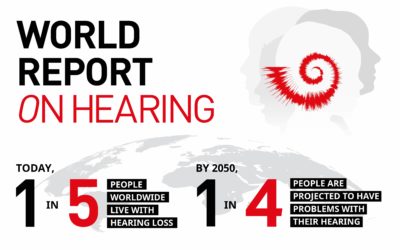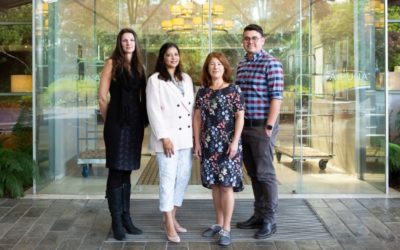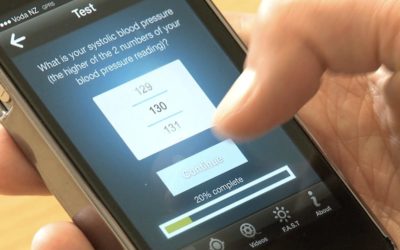Nearly 2.5 billion people worldwide ─ or 1 in 4 people ─ will be living with some degree of hearing loss by 2050, warns the World Health Organization’s (WHO) first World Report on Hearing, released on 3 March. At least 700 million of these people will require access...
Population Health and Epidemiology
Most New Zealanders don’t know how deadly strokes are – claiming 2,300 lives a year and rising
Written by Associate Professor Rita Krishnamurthi Stroke is the third highest cause of death in New Zealand, after cancer and coronary heart disease. But our new research shows very few people are aware of the risk, particularly in Pasifika...
Prof Valery Feigin: Neurological disorders are the leading cause of global disability
BRNZ Principal Investigator Prof Valery Feigin, Director of AUT's National Institute for Stroke and Applied Neurosciences, is New Zealand's most cited scientist and a world-leading stroke researcher. For the occasion of World Brain Day 2020, Valery was interviewed by...
Improving hearing health across the Pacific
Professor Peter Thorne is working to improve hearing health across the Pacific by developing a better understanding of perceptions of hearing loss and to create a clearer, more equitable route for them to access hearing health services.
Alehandrea Manuel: Thinking beyond the booth
In her PhD at Brain Research New Zealand, Alehandrea Manuel is looking at how older Māori and whānau experience hearing loss and hearing services in New Zealand.
Prof Valery Feigin elected as Fellow of Royal Society Te Apārangi
BRNZ investigator Prof Valery Feigin (AUT) has been elected as both a Fellow of the Royal Society Te Apārangi and a Foreign Member of the Russian Academy of Sciences. Valery was elected as one of 19 new Ngā Ahurei a Te Apārangi Fellows, who are recognised for their...
How common is dementia, really?
There are said to be more than 60,000 people living with dementia here in New Zealand. But did you know that this number is only an estimate, based on statistics from other countries? To date, there has never been a dedicated, nationally-representative study into the...
Preventing stroke through coaching
Each year, stroke shortens the lives of millions of people across the globe – it is the second most common cause of death and disability worldwide. But according to BRNZ investigators, Dr Rita Krishnamurthi and MacDiarmid Medal winner, Prof. Valery Feigin, the...
LiLACS – With Professor Ngaire Kerse
Now, more than ever before, people are living well into their eighties and nineties. “When I was a girl no one knew anyone in their 90s,” visiting Professor Ngaire Kerse says, “and now I bet everyone in this room knows someone in their 90s.” Ngaire has come down from...
MRI Scans for the Dunedin Longitudinal Study
This article was originally published by the Brain Health Research Centre [http://www.otago.ac.nz/bhrc/news/otago624666.html] For more than a decade the brains behind the Dunedin Longitudinal Study have wanted to find a way to include neuroimaging in the project. It...
Professor Valery Feigin’s Globally Endorsed Stroke Prevention App
The Stroke Riskometer is a free mobile app that enables people to assess their risk of a stroke in the next 5-10 years. The app’s creator, Professor Valery Feigin of BRNZ, is a stroke neuroepidemiologist who saw mobile technology as the perfect means to get...
Stroke and Heart Attack Screenings Falling Short
A shocking new article by BRNZ researcher Professor Valery Feigin, published in the journal Nature Reviews Neurology, has brought up real concern with how we as a nation are dealing with cardiovascular risk. The Ministry of Health is aiming for 90% screening for...











